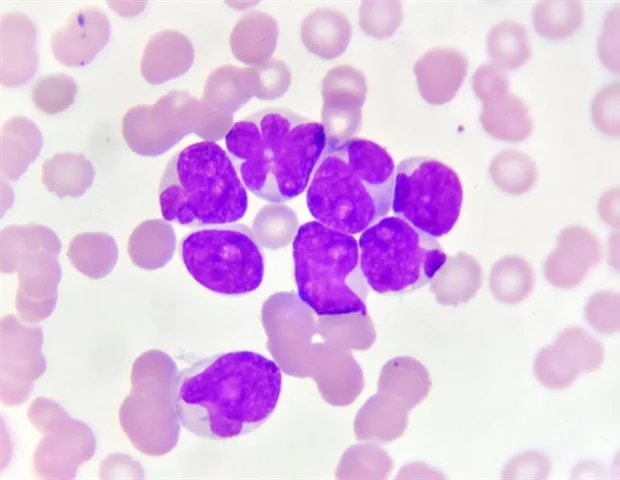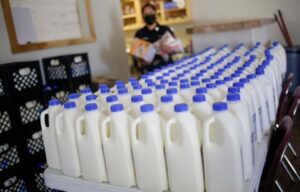California health authorities recently suspended the sale of Raw Farm’s raw milk products after the detection of avian influenza (bird flu) in the company’s facilities. This move has sparked significant concern among consumers of raw milk, particularly those who advocate for its health benefits. The suspension is part of the California Department of Food and Agriculture (CDFA) and California Department of Public Health’s (CDPH) efforts to protect public health from potential risks associated with the consumption of raw milk products that may be contaminated with harmful pathogens.
Raw milk, which is milk that has not undergone pasteurization, has long been a subject of debate due to its potential health risks. While supporters claim it contains beneficial bacteria and enzymes that are lost during pasteurization, public health authorities caution that it may also harbor dangerous microorganisms, including Salmonella, E. coli, and Listeria, as well as viruses like avian influenza. The recent bird flu detection has intensified these concerns.
The suspension came after an investigation by California’s agricultural and public health departments, which identified the presence of bird flu in the raw milk processing areas. The virus, which primarily affects poultry, has the potential to spread to other animals and humans. While human infections from bird flu are rare, they can be severe, and the risk increases when the virus is present in food products, especially those that are not heat-treated, such as raw milk.
Raw Farm, known for its commitment to providing organic, unpasteurized dairy products, is one of the leading brands in California’s raw milk market. The suspension of its products has raised concerns among its loyal customer base, many of whom view raw milk as a natural, healthier alternative to pasteurized dairy. Despite its popularity, the sale of raw milk remains a contentious issue due to its associated health risks. In California, the sale of raw milk is legal, but it is tightly regulated to ensure that it meets specific safety standards to minimize the risk of contamination.
The detection of bird flu in a raw milk facility brings to light the vulnerability of the raw dairy industry to biological hazards. While pasteurization is designed to kill harmful pathogens, raw milk products, like those produced by Raw Farm, are at greater risk for contamination due to the lack of such a safety measure. This incident underscores the need for stricter oversight and testing within the industry to prevent the spread of avian flu and other diseases.
The bird flu outbreak in California has affected multiple sectors of agriculture, with the state’s poultry industry also experiencing significant losses. The virus has led to the culling of thousands of infected birds to prevent further spread. However, the raw dairy industry has also been caught up in the broader concerns about food safety. Experts recommend that consumers exercise caution when purchasing raw milk and related products, especially in times of heightened biological risks like the bird flu outbreak.
Following the suspension, Raw Farm has been working closely with health authorities to investigate the situation and implement corrective measures. The company’s response includes increased testing and improved hygiene protocols at its facilities to ensure that its products meet safety standards and to reassure consumers of their commitment to public health.
The suspension of Raw Farm’s products serves as a reminder of the ongoing risks associated with raw milk consumption. While the product is still legal in California, this incident may prompt further discussions about its safety, particularly in the context of ongoing threats like avian flu. Public health officials continue to warn that individuals, especially those with weakened immune systems, pregnant women, young children, and the elderly, should avoid raw milk products to minimize the risk of foodborne illness.
In the wake of the suspension, some advocates for raw milk have argued that the industry can continue to thrive with enhanced safety measures, including regular testing and transparent consumer communication. These proponents believe that raw milk offers nutritional benefits that outweigh the potential risks when sourced from well-regulated farms. However, the bird flu detection in Raw Farm’s facilities has sparked a renewed debate over whether these risks can be adequately mitigated.
As the investigation into the bird flu detection continues, California officials are working to ensure that all raw milk producers are following stringent safety protocols. The state’s regulatory agencies are also urging other raw milk producers to be vigilant in their testing procedures to prevent similar incidents in the future. For now, Raw Farm’s suspension serves as a cautionary tale about the challenges of producing and selling raw milk in an environment where new and evolving pathogens, like bird flu, can pose significant threats to both animal and human health.
Looking ahead, the future of the raw milk industry in California may depend on the ability of producers to maintain consumer trust while adhering to safety guidelines that protect public health. Whether the suspension of Raw Farm’s products will prompt a wider reassessment of the raw milk industry remains to be seen. Nonetheless, this situation highlights the ongoing tensions between food safety concerns and the growing demand for organic and unprocessed food products. As the industry evolves, so too will the regulatory landscape that governs it, with a continued focus on safeguarding public health against emerging threats like avian flu.














